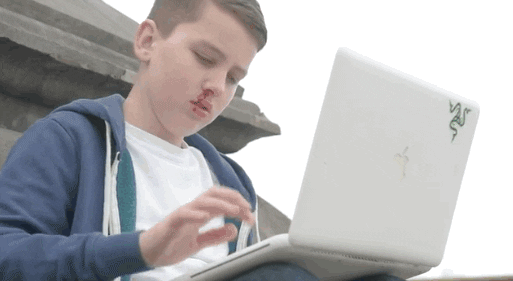More than often children will be afraid to let their parents know they’re being bullied, but prolonged bullying will permanently scar your child’s memories and ultimately, affect their development. It is important for parents to find out earlier by noticing any warning signs or red flags as discussed in our article, “12 Signs your Child might be Getting Bullied”. In this article, we will discuss on the possible next steps and recommendation that parents can follow if your child is being bullied.
Before doing anything, collect the facts!
The first thing parents must do is to get a detailed picture of what actually happened. What happened? Why did it happened? Who was involved? You can gather more data and evidence by talking to your child or if they refuse to share with you, do talk to their teacher or principal. Try a softer or subtle approach to get your child to slowly open up to you. You may try asking:
- I’ve heard a few of my friends’ children getting bullied in school. Is there any in your school?
- Do you have any special friends at school this year? Who are they?
- Are there any kids at school who you really don’t like? Why?
- Who do you sit with at lunch?
- Are there any kids at school who tease you in a mean way?
- Does your friends leave you out or exclude you on purpose in school?
Parents can also stay privy to shifts within your child’s group of friends by connecting with their parents. That way, it is easier for you to notice if your child is left out from any group invites, events or birthday parties.
Do not over-react
If your child is being bullied, do not over-react! Yes, I understand that you will be so furious that you will want to barge into the school and teach the bully a lesson. This will only make the situation worse for your child and making you a bully yourself! Remember, the bully is also just a child and they may not even realise what they’re doing is wrong. Perhaps, the bully themselves are also picked on by other bullies as well?

Seek help from the school
Instead, it is best to talk to your child’s school teacher or principal. They’re in the best position to monitor the kids, talk to the bully’s parents and if it the bullying still continues, they have protocols to follow in which may involve expelling the kid. However, if the bullying continues to escalate, get law enforcement involved. Ensure you let your child know that your plans and get their permission, in case they feel uncomfortable.
Create a safe space at home
When your child is a bully victim, it is vital that you spend more time with your child to let them know you’re always there for them. Give them regular hugs and assure them that you love them. If your child came forward to you about bullying, praise them for doing the right thing by talking to you about it. Let them know that it is not their fault for getting picked on, and that bullying says more about the bully than the victim. Reassure your child that you will figure out what to do about it together and their safety is your main priority.
Furthermore, creating a safe, comforting and supportive home environment for your child can greatly help bullied kids relax and recover from the stress, anxiousness, or depression that they may be feeling. Here are some home ideas that could help:
- Encourage your child to express themselves in other ways besides just talking to you. It could be through journaling, releasing emotions through music, getting involved in team sports, dance, drama, or art and craft. Try to identify hobbies, talents, or activities that your kids are interested in and make sure your home is set up in a way that encourages your child to pursue their passions.
- Create a dedicated space for your child to retreat. It could be in their bedroom, an outdoor play area, or a temporary homemade fort in your family living room.
- If your child is being cyberbullied, it may help to limit your child’s screen time by setting curfews on their phone use, moving computers out of your kid’s bedroom to communal spaces like a living room or study area, or installing online safety monitoring tools. That way, you can keep a better eye on your kid’s online activities.

Encourage a change
If your child is avoiding a certain sports they once loved, try understanding the situation better to find out if your child is being bullied by his or her team member. Whether you manage to find out or not, do not force them to participate as this will only instill more fear in them. You can instead suggest a different sports or team for them to join, whereby your child can stay away from a bullying situation and at the same time, nurture other friendships.
Otherwise, you can also consider enrolling your child in an activity or sports that do not require them to play in a team. For example, martial arts, swimming or dancing. This will enable your child to build confidence without the pressure of pleasing their teammates.
Encourage your child to make one good friend
Kids who sit alone and don’t have friends are easy targets for victimisation. Having just one good friend may help reduce the chances as bullies will not want any witness to support the victim’s complaint to their teachers. Your child do not need a friend who can step up and stop the bully, instead it’s more important that the friend encourages them and tell them “It’s not your fault, let’s talk to the teacher.”
Coach your child how to deal with a bully
Kids who become a bully’s target are more likely to be shy and timid. A child’s reaction to the first taunt will impact on whether he or she becomes a perpetual target. Crying, responding submissively and getting upset will only encourage a bully. The key is that a comeback should not be a put-down because it’ll only aggravates a bully. The best way to fight back is to make sure that tormenting your kid is not worth the bully’s while.
Therefore, parents must teach your kids assertiveness and to stand up for themselves when they are being bullied. Remember, this doesn’t mean your child has to fight back because it’s surely not the best solution. Instead, teach them to cool down when getting angry at an attack and to wear a “poker face” until they are clear of any danger. Do not attempt to laugh or smile as this provokes the bully. Eventually, the bully will get bored and move to another target.
Parents can also teach your child to look confident and firmly tell the bully “Stop! It’s not right to pick on your friends. If you do it again, I will report to the teacher” or your child could just say “Whatever, I don’t care,” and then walk away. If needed, rehearse a script with your child at home and teach them how to speak bravely and firmly. And of course, remind your child to get help and support from their teachers or principal.
For younger child, parents can use tricks that make your child a less inviting target such as telling your child to practice looking at the colour of their friends’ eyes and to do the same thing when she’s talking a child who is bothering her. This will force your child to hold their heads up and appear more confident and brave. How you look in front of a bully is more important than what you say.

Do not limit their device usage or take them away
When parents are always ‘punishing’ your child before understanding a situation, it is truly understandable if your child refuse to tell you anything. Similarly, if your child is seen overly-attached to their devices and often agitated while on their device, they will refuse to share with you that they might be experiencing cyberbullied for the fear their devices will be taken away. Instead, you will want to show that you’re not going to take their devices away and genuinely want to understand what upsets them.
Importance of privacy and online dangers
It is also good idea to educate our children on how to fully utilise the net and how to protect themselves when they’re on it. Take time to teach them about their privacy and the means to protect it from being violated. Let them be aware and understand what is cyberbullying and other online issues like sexting, paedophiles, impersonation and threats, and their consequences. It is also important to teach them how to deal it which is not to respond to any of them, because it’ll only add fuel to the fire. Instead, save a screenshots of the messages as proof of evidence and report them to the social media platforms.

Monitor their online activities and set restrictions
Stay involved in your child’s cyber world, just as much as in their real world. This helps parents to be more aware of what’s happening and easily protect them from any danger. Parents may want to be give their teens the privacy for them to use their device, but kids will always be kids. It is important for parents to observe your children’s behaviour, know what platforms, apps and sites your children visit and what they do online. It is also important to know your children’s friends, both online and offline. Another good measure for parents is to utilise the parenting control functions that most devices have, and block any sites or apps that you think are harmful for your children.
Consult a child counsellor or psychologist
If you child still appears depressed even after the bullying has stopped and you have tried all ways to help the situation, you may want to resort bringing them to a child counsellor or psychologist. After all, they are the professionals.
If you’re not sure if your child is being bullied, do click here to learn about the warning signs or red flags that may indicate that your child is a victim. Or if it’s the other way round, do read our articles “12 Signs your Child is a Bully” and “My Child is a Bully! What Can I do?”
Don’t forget to subscribe to us for a free e-book on Parenting in the Digital Age!










The other day my sister mentioned that she suspects her son is being bullied at school because he gets anxious whenever she drives him to school. I appreciate that this post explains one of the best ways to respond to bullying is to not be submissive as well as being confident in standing up for themselves. I think it is important for my sister to know how to handle the delicate situation and because she loves to read, I will suggest her to pick up some books on bullying to help her son.
We’re really glad that we could be of a help. It is certainly not easy to face bullies, so what he needs the most now is support from his friends and family.
Great information. Kinda sad that kids nowadays still get bullied